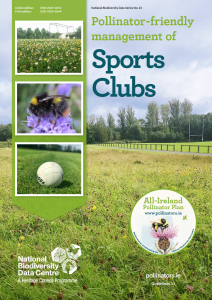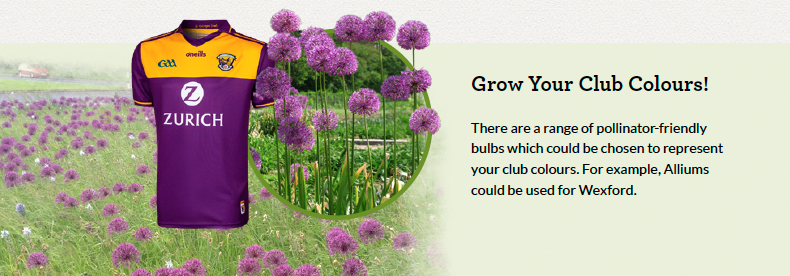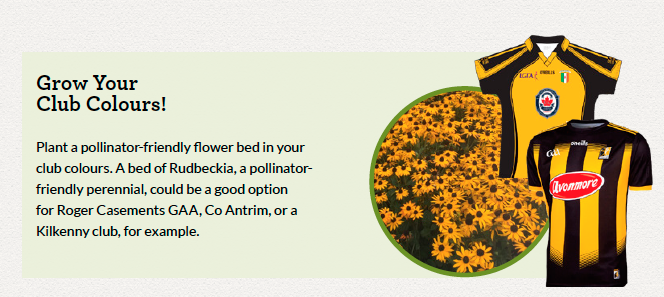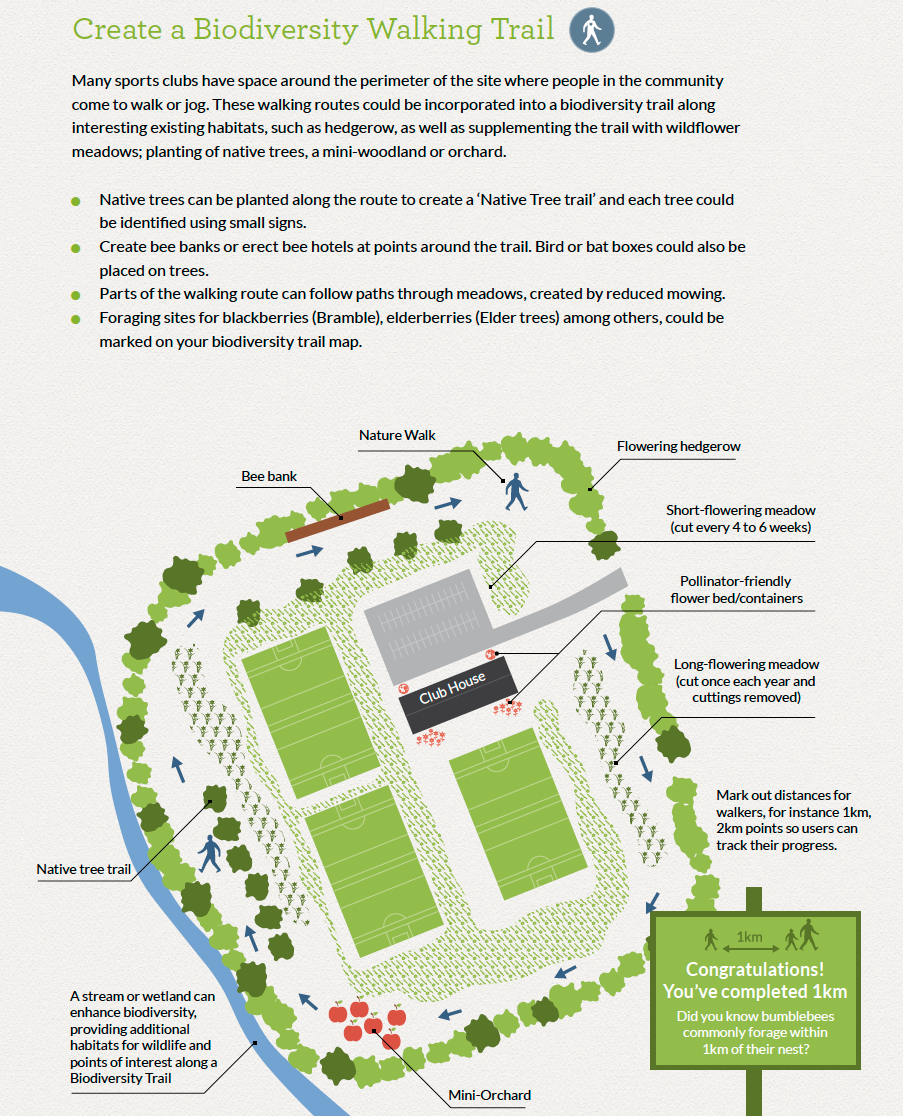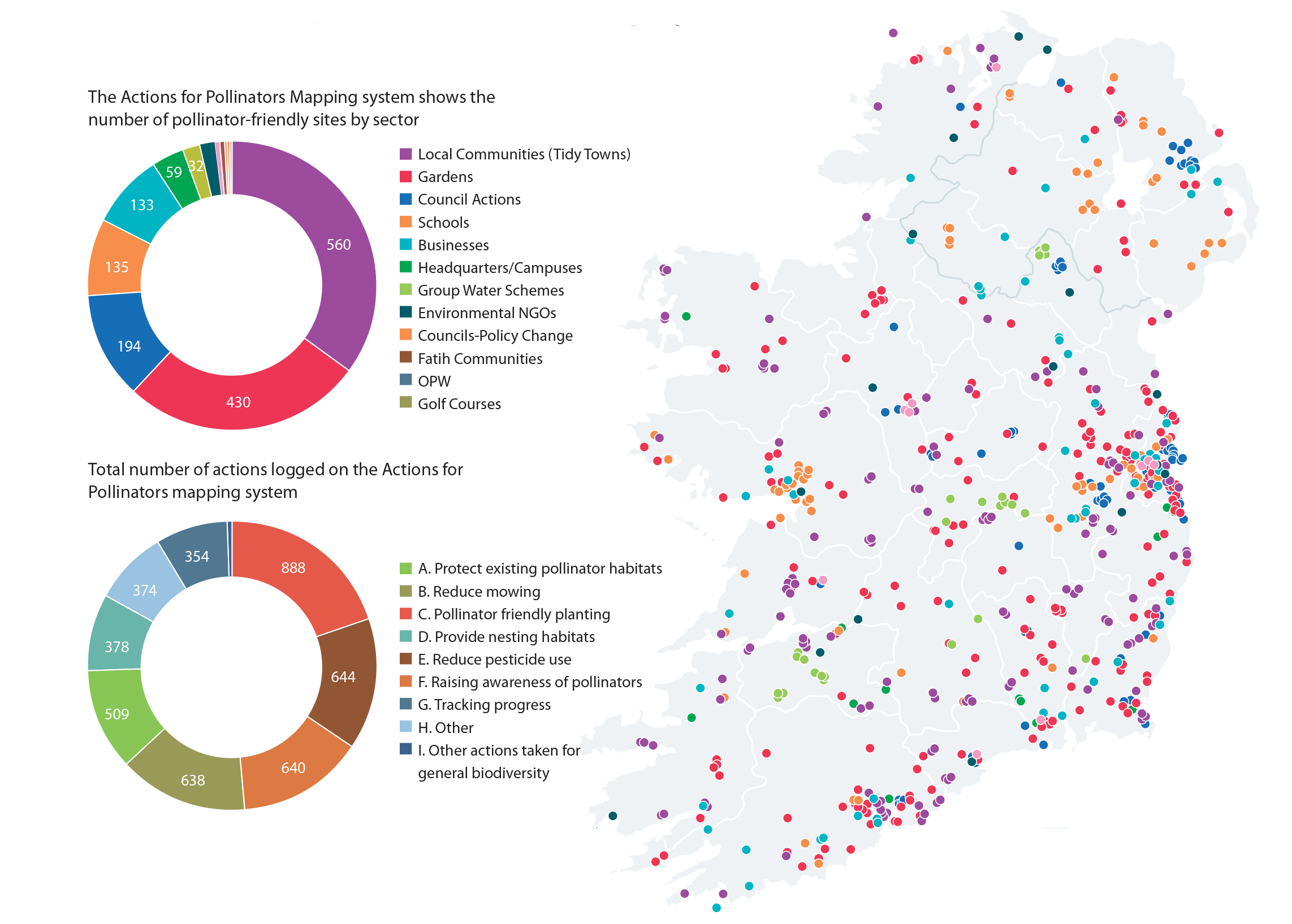With approximately 15,000 clubs across the island, sports clubs can play a vital role in the conservation of our biodiversity. The newest publication from the All-Ireland Pollinator Plan, ‘Pollinator-friendly management of Sports Clubs’ offers 10 actions to help pollinators, ranging from reduced mowing on off-pitch grass to planting a native tree walking trail.
This guide is aimed at those who have responsibility for managing Sports Clubs and their surroundings. All these actions are evidence-based, i.e. scientific studies show these actions have a positive impact on pollinators. Pollinators need food, shelter and safety and fortunately many of the land management changes required are really simple. They are also often ‘do-not’ actions rather than ‘do’, so that there is no cost and nature itself does the hard work. There are actions for all types of clubs, and both rural and urban, regardless of how much outdoor space a club might have.
Helping biodiversity helps mental health
Making a site more biodiversity friendly also results in health benefits for humans. There is a growing number of studies showing the health benefits of spending time in biodiversity-rich areas. Walking in biodiversity-rich areas, such as woodlands or meadows, where people can see butterflies, bees and birds, has been shown to lower blood pressure, reduce stress, and help with concentration, attention, depression and anxiety. Creating grounds that offer opportunities for club players, children and community walkers to interact with native biodiversity in our sports clubs has real benefits for their mental and physical health.
5 ways to make Sports Clubs biodiversity-friendly:
A. Manage some off-pitch grass for pollinators.
(by reducing mowing to every 4 to 6 weeks or long-flowering annual meadows)
B. Manage existing native hedgerows for biodiversity.
(by allowing native hedgerows to flower each spring)
C. Plant biodiversity-friendly trees, shrubs and flowers.
Planting additional pollinator-friendly trees, shrubs, perennials and bulbs around the grounds provides vital sources of food, particularly in spring and autumn.
D. Reduce use of herbicides.
Adopt a pollinator-friendly pesticide code and protect local water sources. Consider strimming instead of spraying around fencing, goals and lights. Avoid spraying the base of trees or hedgerows.
E. Provide nesting places for wild bees.
(such as hedgerows, mud banks, drilled wood and bee hotels)
There are also fun suggestions to help biodiversity, such as planting pollinator-friendly flowers in your club colours!
Biodiversity Walking Trail
Another suggestion included in the new guidelines for sports clubs is to create a Biodiversity Walking/Running Trail around the grounds, which would prove popular with local schools and the wider community.
You can also register what actions you have taken at your club on our online mapping system, where a new section for Sports Clubs will be launched in 2021:
www.pollinators.biodiversityireland.ie
According to Dr Úna FitzPatrick, Co-founder and Project Manager of the All-Ireland Pollinator Plan: ‘We are thrilled to launch these new guidelines. Sports Clubs are at the heart of communities. We are asking clubs to take small actions that will help our declining biodiversity, and in doing this we hope they will also create havens for the community. Having spent time on many pitches, and latterly on many side-lines, I know that clubs have huge potential to create colourful and vibrant areas for biodiversity and for people. With one-third of our wild bees facing extinction in Ireland, we all have to act now. By taking small actions, together, we can change things for the better. We hope that in 2021, sports clubs will help by joining this effort.’
The National Biodiversity Data Centre is collaborating with the GAA on their new Green Clubs Programme. 2021 sees the launch of Phase 1, in which 45 clubs and two regional venues explore a range of sustainability projects designed to enrich their physical and social environments. A number of these clubs will work to implement this new guideline document ‘Pollinator-friendly management of Sports Clubs’ in order to make their club more biodiversity friendly.
If it is possible to make small changes to grounds and adjust maintenance practices, sports clubs could create an entire network of safe places for biodiversity across the landscape. The positive impacts for biodiversity could be enormous.
About the All-Ireland Pollinator Plan
One-third of our 98 wild bee species are threatened with extinction from the island of Ireland. If we want them to be there to pollinate crops and wild plants for future generations, we need to manage the landscape in a more pollinator-friendly way. The All-Ireland Pollinator Plan is supported by over 100 governmental and nongovernmental organisations who have pledged to deliver actions to achieve this goal and make the island of Ireland more pollinator friendly. It is a shared plan of action.
Everyone, from farmers to councils, local communities, businesses, schools, gardens and transport authorities have a role to play in the Pollinator Plan.
See www.pollinators.ie for how each sector can help through evidence-based actions.

